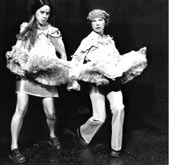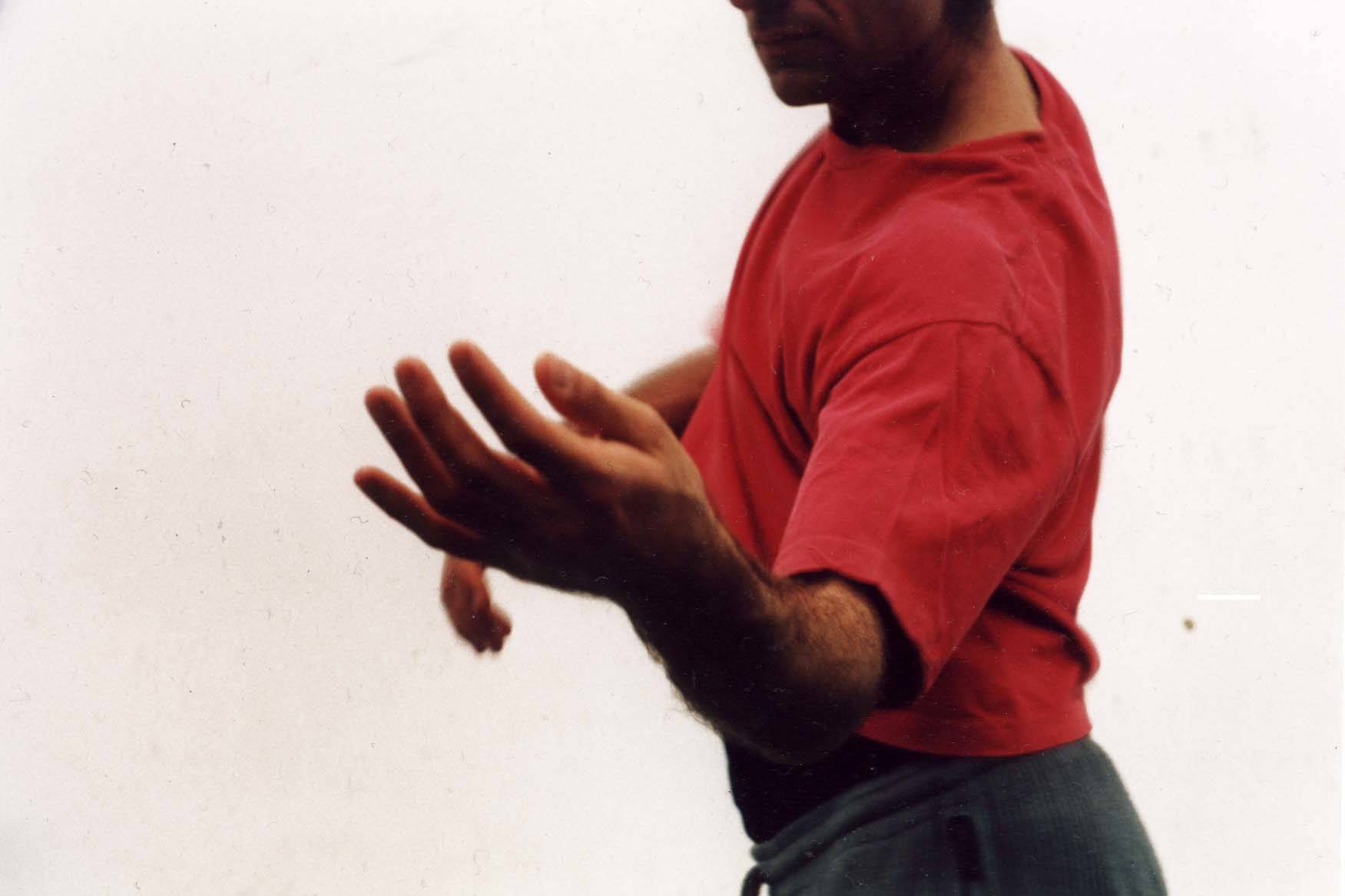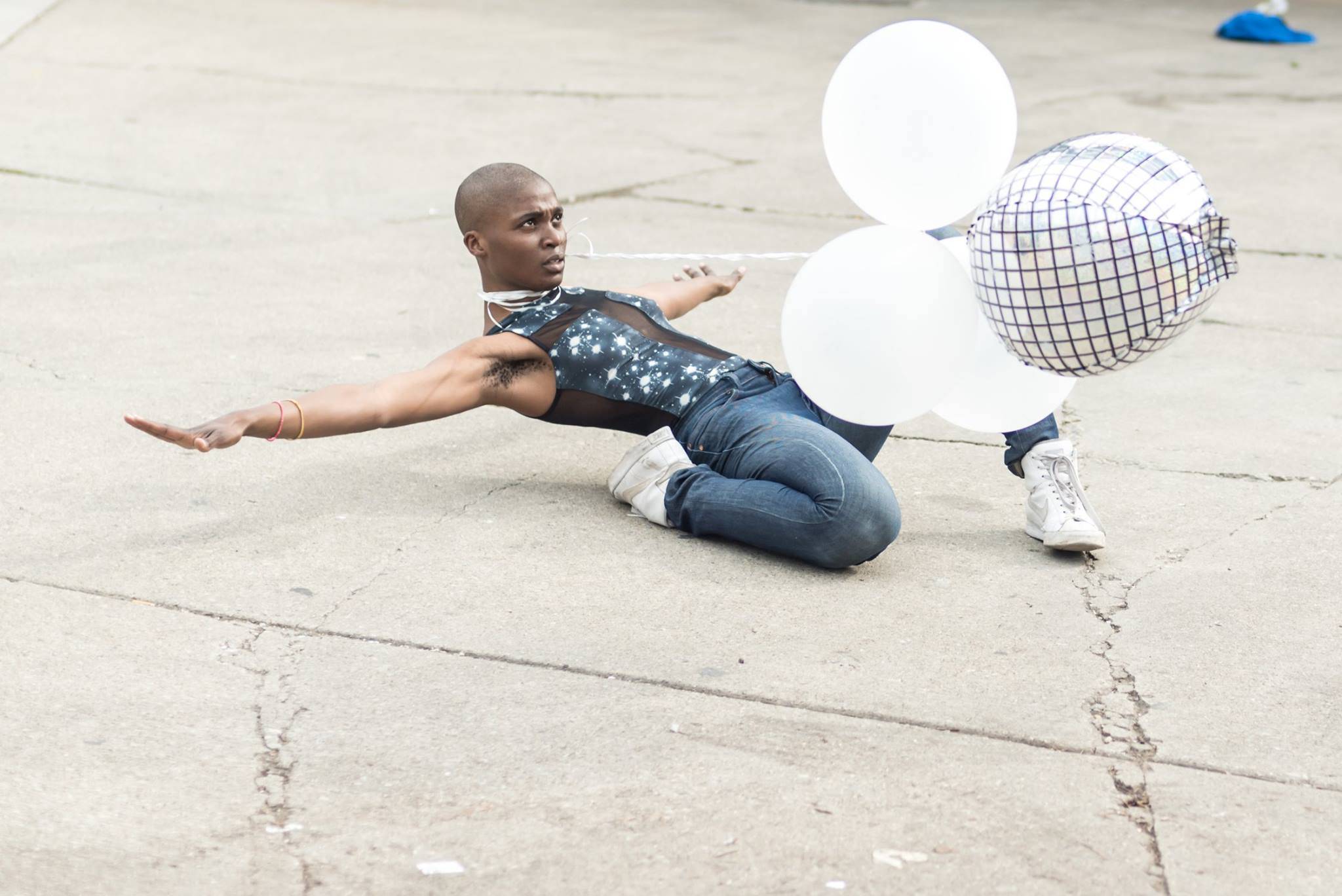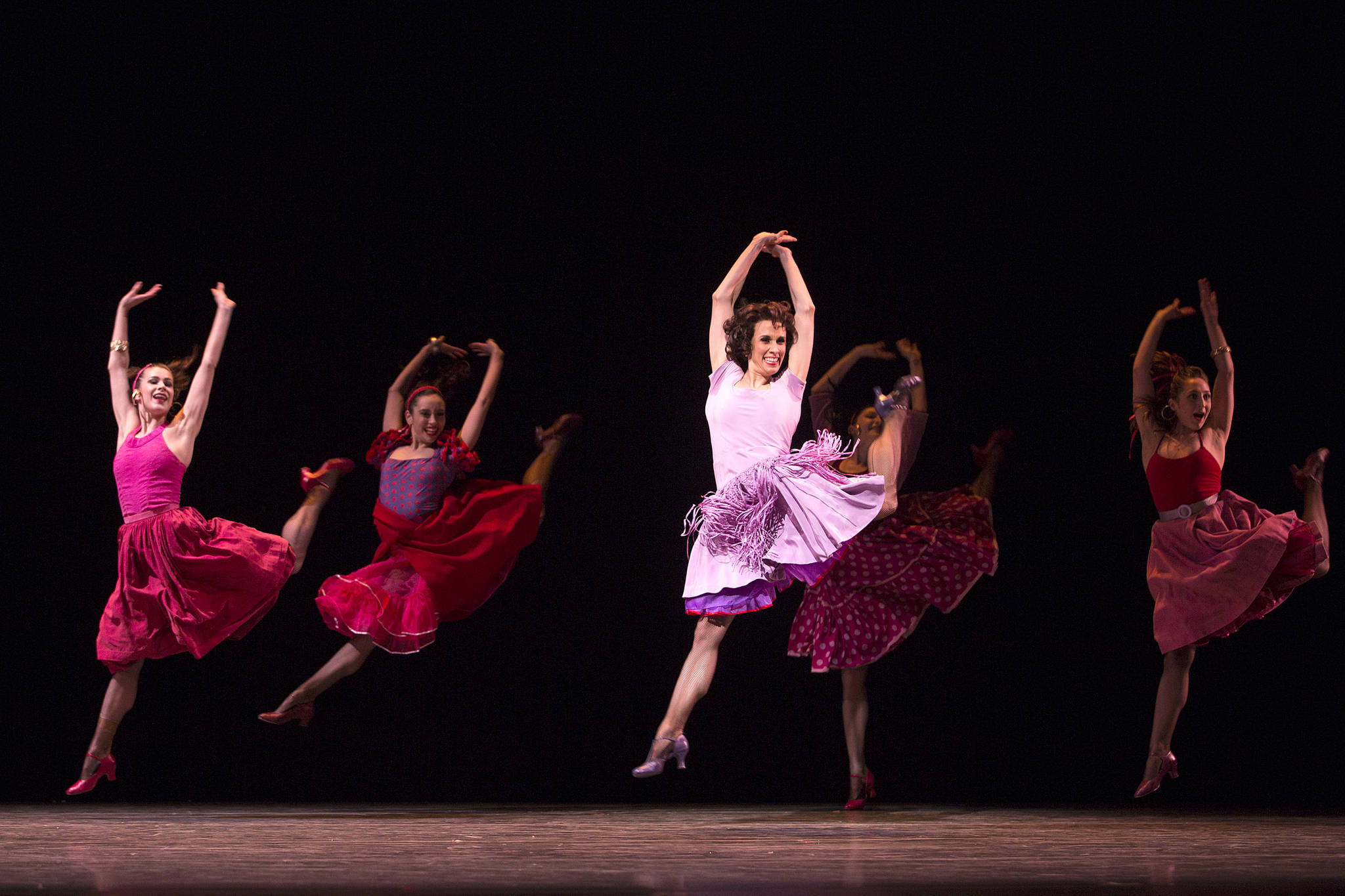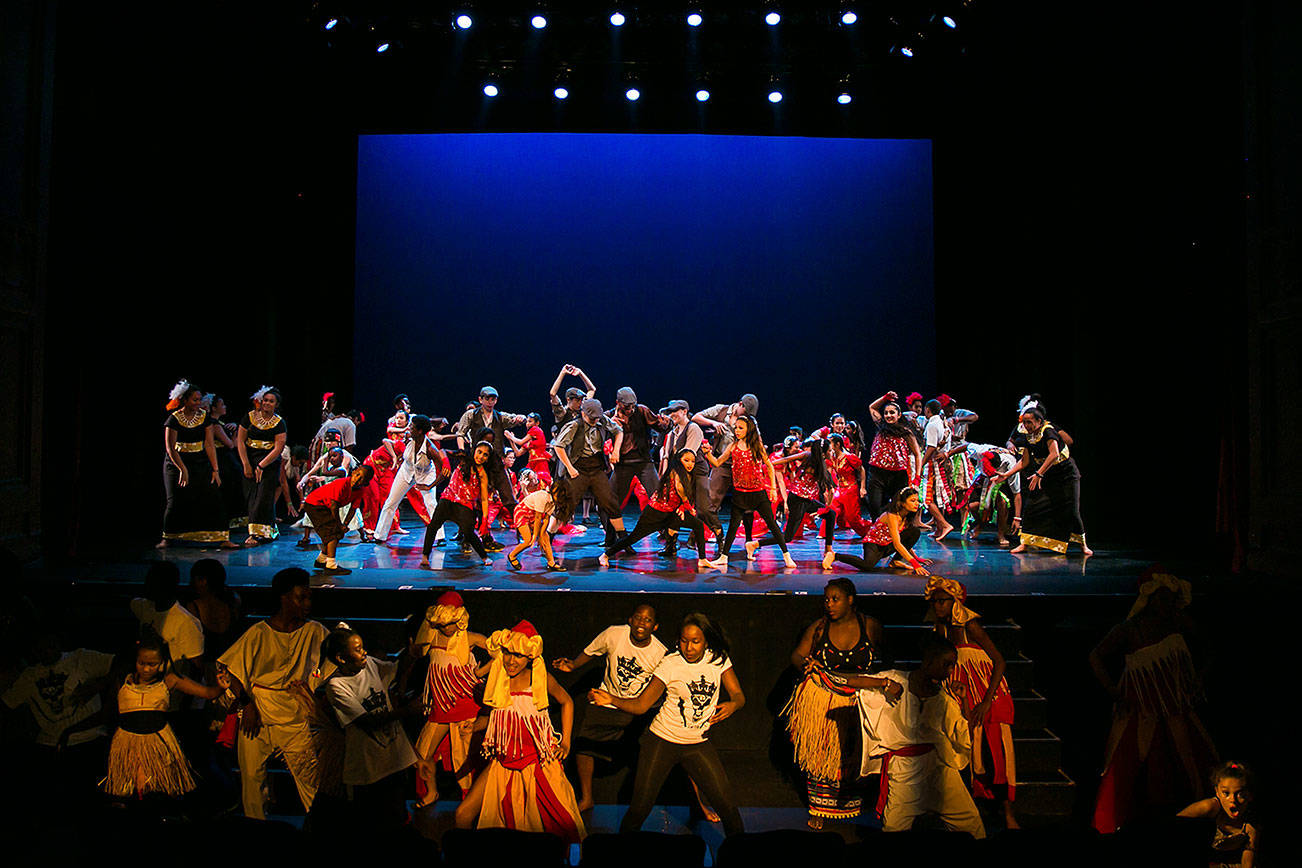DIRTY WORK
33 FAINTING SPELLS
Richard Hugo House, 1634 11th, 686-3243, $15-$25 8 p.m. Thurs.-Fri., Sun., March 14-17; 8 p.m. and 10 p.m. Sat., March 16
NOTHING GETS OLD faster than stuff that’s sold to us as new. 33 Fainting Spells’ Dirty Work shows us the humble afterlife of new things. From the bright pink cans of Tab that litter the performance space to the discarded Exercycle and army surplus cot shoved against the wall, this is a work that could have been staged in the rec rooms of my suburban youth. And as the trio of dancer/choreographers Dayna Hanson, Gaelen Hanson, and Peggy Piacenza briskly move through a collection of vignettes drawn from film, theater, and dance, they also seem to alternate between an optimistic past and a more subdued present.
The past is an eclectic blend: Quotations from classical ballet rub up against calisthenics; Roger Whittaker shares time with Anton Webern. A 1960s A-line shift is next to a 1970s slinky polyester ruffled shirt, but all of these things seem to have acquired a dingy patina, bright colors and crisp sounds grayed out with dust and time.
The sense of deterioration is especially vivid in the intermittent spoken text, drawn from Ingmar Bergman’s Summer Interlude, Anton Chekhov’s Swan Song, and Tony Richardson’s The Entertainer—all dealing with artists reflecting on lost opportunities and the waning of their powers. This theme is reinforced by one of the most touching elements in the work, a collection of old record players and speakers that could have been lifted from an elementary school AV closet. The dusty hum of the amplifiers filtered through tinny speakers matches the sadness in Dayna Hanson’s voice as she confesses that she’s turned her back on earlier ambitions and has become a hack. And the space-age geometry of the speakers, now marred and dented, marks them as a product of their time more clearly than carbon dating.
At times, it seems like the stage space might be a bomb shelter or some other kind of refuge that has become a jail. The performers seem confined, their gestures held close to their bodies and their larger movement phrases looping back on themselves or cut short altogether. A series of short films projected on rickety screens linger on close-up views of their costumes, examining the details of buttons and stitching, and reinforcing the sense of enclosure.
Like the characters in 1997’s Sorrow’s Sister, these women have developed little quirks and strange behaviors that make their connection to a larger world seem out of sync. They re- enact old movie scenes, perform excerpts of ballet repertory, act out a robbery. By the end of the piece, we don’t really need to hear Piacenza’s multiple repetitions of a therapy session to know that they might have trouble keeping their past from interfering with the present.
33 Fainting Spells’ works often ask more questions than they answer or offer multiple interpretations to a deceptively simple premise, and Dirty Work is no exception. The goal doesn’t seem to be to experience a kinesthetic rush or untangle a choreographic puzzle, but instead to find little truths in accumulated detail, to recognize how things can embody our experiences and trigger moments of understanding. These artists are masters of collage, managing to present several decades of cultural references in a little over an hour and evoke tender feelings for the cast-off detritus of our lives. When Piacenza gingerly carries a working record player across the space, it seems like a living thing; and when the lights dim, we still see the glow of its on/off switch, like a little candle left burning against the dark.
